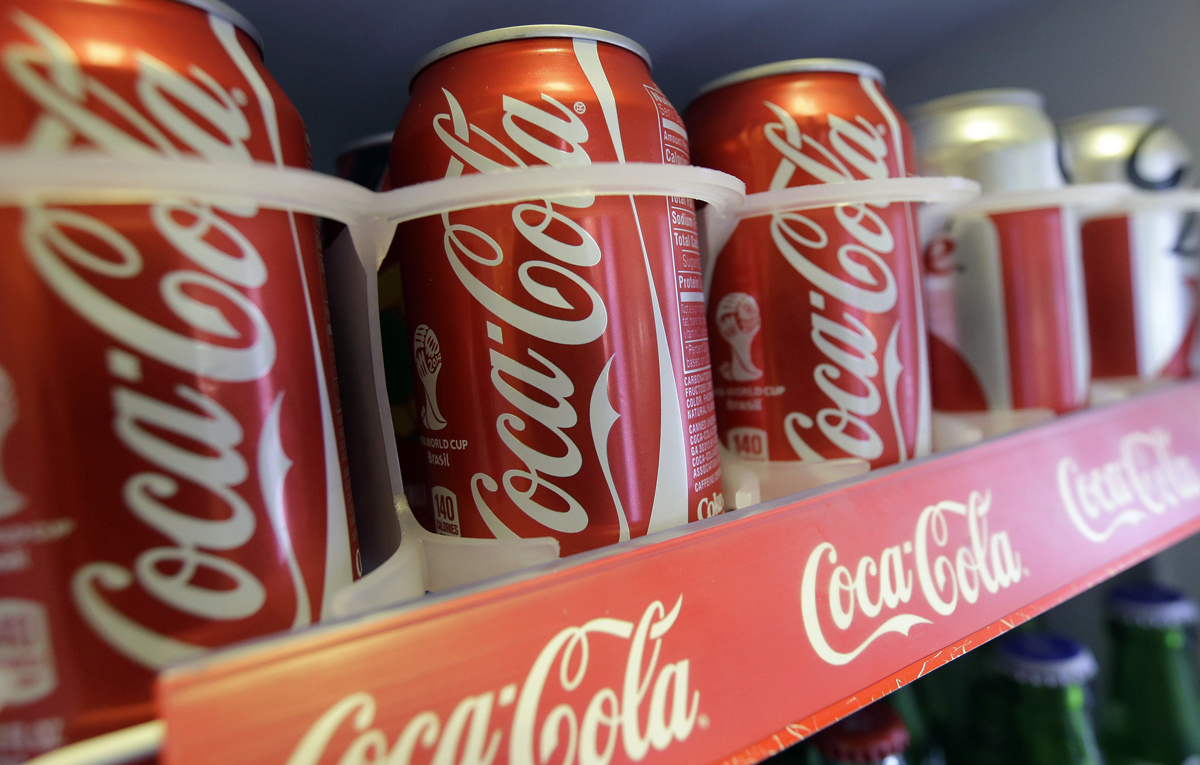Do consumers really change their habits when sugary options come with extra tax?

The Canadian Taxpayers Federation (CTF) says taxes on sugar-sweetened beverages that are meant to encourage people to make healthier choices don’t actually work, but a Waterloo, Ont.,-based researcher says they have drawn on “very little of the real evidence” in making their claim.
The federation released a report Thursday that evaluated countries and cities where a sugar or fat tax was introduced and said the results show these taxes have not had a serious, sustained impact on consumption or obesity rates.
LISTEN: Canadian Taxpayers Federation releases report that claims sugar taxes don’t work
“What we found was in a lot of cases, whatever the good intentions of these taxes – which is to decrease obesity and improve public health – the results really do not bear any fruit,” CTF federal director Aaron Wudrick said.
Wudrick pointed to Mexico as one example where a sugar tax has failed, despite health experts calling it a success story. He said although consumption dropped by six per cent after Mexico introduced a 10 per cent soda tax, demand “tends toward inelasticity” as the decrease is less than the amount of the actual tax.
He also said that demand has started to increase after this initial drop.
“So, the result is the government has quite a bit of money from this tax, but it hasn’t achieved the object of reducing the obesity rate,” Wudrick said.
WATCH BELOW: Can taxing sugary drinks reduce obesity?

But a researcher at the School of Public Health at the University of Waterloo said consumption doesn’t need to decrease by the same amount as the tax to introduce significant health benefits.
“That’s equivalent to about 32 million Mexicans drinking less sugary drinks at the same time as the government in Mexico gained somewhere around $145 million in revenue from the first year,” professor David Hammond said.
“By any stretch of the imagination, that’s a positive health outcome.”
Here’s how the math works out, according to Hammond:

Get weekly health news
If there are 150 calories in a can of pop and you drink one pop a day that’s about 54,750 calories in a year and more than one million calories over 25 years.
“What you’re talking about is a huge amount of energy and calorie intake,” he said. “Those little changes in our dietary intake are what explains the huge increase we’ve seen in obesity over the last 30 years.”
But, what about the fact consumption is rising again in Mexico?
LISTEN: University of Waterloo professor David Hammond reacts to Canadian Taxpayers Federation report
Seema Nagpal, the senior leader for public policy at Diabetes Canada, said you have to expect consumption will vary from year to year.
“Nobody expects this to be a magical situation that will drive consumption down immediately and sustained without changes. We don’t live in a bubble.”
Nagpal said there are other factors that influence consumption, such as marketing, one’s “food environment and preferences” and education.
“It has to be part of a comprehensive solution,” Nagpal explained.
Consumers will find loopholes
But Mexico isn’t the only example used by the CTF. Wudrick said Philadelphia has shown that people are going to find ways to avoid paying the tax.
“What happened in Philadelphia was a dramatic shift,” he said. “People just simply started buying their pop outside the city limit and it really hit a lot of the retailers, grocery stores in Philadelphia badly to the benefit of suburban grocery stores.”
“People are not stupid. They can compare prices between stores. They can certainly compare them to neighbouring jurisdictions when they’re close at hand.”
WATCH BELOW: Survey suggests Albertans support tax on pop and energy drinks

The Canadian Taxpayers Federation report draws on data from the Office of the Controller in Philadelphia, which found that sweetened beverage sales in Philadelphia ShopRites and Fresh Grocers fell 57 per cent while sales in suburban stores grew by 14 per cent.
However, this appears to suggest that the decrease in sugary drink sales in Philadelphia far outweighs the increase at suburban stores.
“I question how many people are actually going to get in their car and drive further to save, you know, 20 cents on a bottle of pop,” said Hammond.
Wudrick said CTF’s research also suggests sugary drink taxes prompt people to substitute for other items that might be just as bad for their health.
LISTEN: Seema Nagpal with Diabetes Canada on why her organization is calling for a sugar tax
The report cites data from the School of Public Health at Yale which found consumers switched to milk and juice, which may contain as much or more sugar as soft drinks.
But Nagpal said groups like hers are calling for a manufacturer’s levy on all sugary drinks, not just pop. “We’re not targeting any one of the sugary drinks.”
And Hammond said there is evidence to suggest that consumers will make healthier choices when forced to substitute.
“You know what happened in Mexico? They substituted primarily by buying more water.”
The CTF report also suggests there’s no real evidence that sugar-sweetened beverage taxes in countries like Mexico and France have decreased obesity rates in those countries. The CTF said BMI rose in Mexico in the year after the tax was introduced. And rates of obesity have risen for French men and stabilized for women since a soda tax was introduced there.
Not a silver bullet, but it’s a start
“I think what we’re cautioning is that a tax is not the silver bullet here. That the reasons for obesity are a lot more complicated than, ‘pop is cheap,’” said Wudrick.
Nagpal said it takes time for a change in the obesity rate to really register after such taxes are introduced.
“I think that the weight loss that we hope to see, or the changes in weight gain that we hope to see are medium-term outcomes,” said Nagpal. “So we don’t expect to see that for several years after the implementation of a tax or a levy.”
And to the claim in the CTF report that these taxes are disproportionately hard on the poor, both Hammond and Nagpal were indignant.
WATCH BELOW: World Health Organization urging for taxation of sugary drinks

“Diabetes is really hard on the poor. Heart disease is really hard on the poor. Cancer is really hard on the poor,” she said. “Not being able to afford medications, not being able to access healthcare resources, not being able to eat well once you have a condition – that’s really hard.”
Hammond said lower-income Canadians stand to benefit the most from sugar-sweetened beverage taxes.
“They’re more price-sensitive. They’re more likely to change their behavior.”






Comments